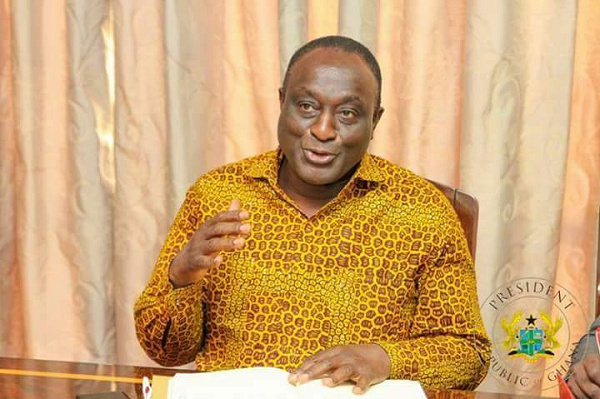 Independent presidential candidate and leader of the Movement for Change, Alan Kyerematen, caught the eye this week when he advocated for a change in the funding model for sports development in Ghana.
Independent presidential candidate and leader of the Movement for Change, Alan Kyerematen, caught the eye this week when he advocated for a change in the funding model for sports development in Ghana.
At a media engagement on Tuesday, 13th August 2024, Alan Kyeremanten said it should not rely on its budget to develop sports but rather empower the private to fund sports for the country.
Under Chapter 6, 37(5), of the Ghanaian constitution, the state is charged with ensuring the provision of “adequate facilities for sports… throughout Ghana and that sports are promoted as a means of fostering national integration, health and self-discipline as well as international friendship and understanding”.
But Alan, who is a former Minister of Trade in the present government, says the present model does not bode well for sustainable sports development for the country.
“Government has the wrong approach and business model with sports. If the government thinks that they can use the government budget to develop sports, it is not going to happen,” he said.
Ghana’s first President Dr. Kwame Nkrumah invested heavily in sports development after Independence on 6th March 1957, relying heavily on the construction of sports infrastructure and the establishment of national sports academies and grassroots sports development for the nation’s early success in sports.
But Alan Kyeremanten claims the private sector can do a better job than the government in the construction of infrastructure and maintenance of infrastructure.
“It is all about government empowering the private sector to establish sports academies and infrastructure of the highest standard. If a private person is investing, he will make sure that he does it very well and he will maintain them.”
Further, Alan Cash, as he is affectionately called, suggested that there is a direct link between the provision of world-class infrastructure, and world-class sportsmen/women, and promising more under his future government.
“If you don’t have world-class infrastructure in sports, you cannot develop world-class sportsmen. If Alan becomes president with this policy on Sports, you will see what will happen,” he summed up.
It is important to note that all the major sports infrastructure in the country was built by successive governments but the lack of maintenance culture, particularly at the National Sports Authority has led to the poor state of national sports facilities.
It stands to be seen if the private sector will be able to provide the necessary funding, running into hundreds of millions of US dollars to build such infrastructure and maintain them over time. It can be argued that governments all over the world take particular interest in the provision of sports infrastructure from the community level to the national level.
Taxes and sports lotteries have been used as instruments to raise the necessary funding for sports development.
Meanwhile, governments the world over, take a keen interest in sports development because of the important role sports play in national development. Sports serve as a rallying point for national unity and harmony. However, the United Nations Educational, Scientific and Cultural Organization (UNESCO, 2023) estimates that sports accounts for only 0.5 percent of the Gross Domestic Product (GDP) of African nations compared to the global average of 2 percent.






